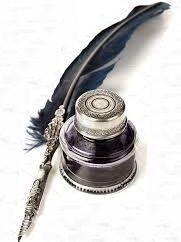The Game of Bonding —A Story of Plastics What are plastics but the same elements that make up you and me? Hydrogen, oxygen, carbon, nitrogen… What are they, but like us of life longing to come into forms and beings that can be seen, touched, used, and appreciated through bondings— bondings sometimes too intimate, covalent, and long-lasting according to our ever so particular human needs? Nature made, or human-made can both sustain or destroy lives. In essence, as matter there is no increase, no decrease no creation, no elimination as the Heart Sutra says as the physical law reveals. Thus, no liking, nor disliking shall be applied towards the same matter as you and me. But the human, curious child of Nature discovers a small secret designs a game and plays it too far— Now we have waves, waves that are human-made of plastics, of covalent bondings coming into being— for a few seconds or hours or days or years of usage, then discarded to form waves of sheets, chunks, chips, fibers, and particles of waste, waste of covalent bondings on top of the lands, on bottom of the oceans in the air we breathe, in the water we drink in a small bird’s stomach, in a young mother’s breasts in a cell’s nanometer membrane in a surfer’s giant waves … We are Nature’s failed students punished by our mistake of not being able to learn the total truth before trying our hands on alchemy— because we thought and think we can because we sold our soul to the devil who said, “Yes! Yes! You can!” without mentioning the consequences of our actions. The devil is nothing but the partial truth— which is what we know and always insist as total truth. What makes anything evil, often, is our inability to bear the consequence it brings. Yet, in Nature's time, God's eyes everything is degradable including the consequence itself. Buddha says: All things are emptiness. They are without defining characteristics. They are not born; they do not cease. They are not defiled; they are not undefiled. They have no increase; they have no decrease. Jesus says: Love your enemy— Your enemy is yourself. Laozi says: All is one— The plastic is you. You are the plastic.
Author’s Note:
A covalent bond is a chemical bond that involves the sharing of electron pairs between atoms. The stable balance of attractive and repulsive forces between atoms, when they share electrons, is known as covalent bonding. Chemical structures formed through covalent bonding are relatively stable and non-degradable.
The Last Rhino Spring just began. An old beast gentle, grave, and ancient the last male northern white rhino yielded with soft eyes to “euthanasia” leaving behind the entire other gender of his species: a daughter and granddaughter in a zoo far from home. On a continent far from my homeland every day and night I think of my ancestors their poetry and teachings. Ancestors live in thoughts and bodies of their offspring. Without offspring ancestors cease to exist. Even with his kind once roaming in crowds like clouds upon wilderness and waters like poetry and songs whispering and whispered for millions of years in languages of their own an ancient being, a “beast” gentle and grave finally became the last of his gender and kind drifting with thoughts of the last two of the entire other gender into the increasingly virtual (and “beast”-free) reality of humankind — the terminator and myth-maker of other species. It must be how dragons and unicorns were killed and made. What they had or would have named and made of us we will never know.
Chun Yu, Ph.D., is an award-winning bilingual (English and Chinese) poet, graphic novelist, scientist, artist, and translator. She is the author of the multi-award winning memoir in verse Little Green: Growing Up During the Chinese Cultural Revolution (Simon & Schuster) and a historical graphic novel in progress (Macmillan). She is a Pushcart Prize nominee (2021 & 2022) and an awardee of China’s Xu Zhimo Micro Poem Competition (2022). She is a Library Laureate 2023 of the San Francisco Public Library. She is a YBCA 100 awardee (2020) for creative changemakers. Her work is taught in world history and culture classes. She has won grants from San Francisco Arts Commission, Zellerbach, Poets & Writers, and Sankofa Fund. Chun holds a B.S. and M.S. from Peking University and a Ph.D. from Rutgers University. She was a post-doctoral fellow in a Harvard-MIT joint program. Her websites: www.chunyu.org, Two Languages/One Community, and Chinese American Stories.
